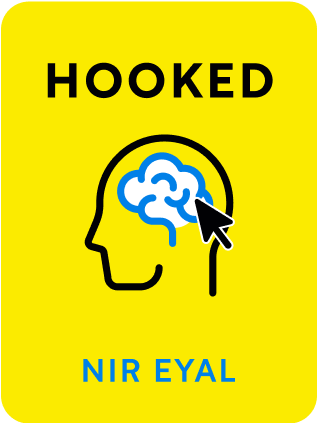

This article is an excerpt from the Shortform summary of "Hooked" by Nir Eyal and Ryan Hoover. Shortform has the world's best summaries of books you should be reading.
Like this article? Sign up for a free trial here .
What are variable rewards? How do they differ from fixed rewards?
Variable rewards are an unknown effect from performing an action. In contrast, a fixed reward is a known result. With variable rewards, the psychology of rewards shows an excitement that comes from not knowing.
Read more about variable rewards and how they can help your product.
Types of Variable Rewards
There are three types of variable rewards with their own psychology of rewards:
- Rewards of the Tribe
- We generally want to feel accepted, attractive important, and included. When other people give us social validation, this is a powerful reward.
- Seeing others get rewards also works on us. Witnessing someone being rewarded for a particular action promotes that action within ourselves. (For instance, seeing someone get publicly praised for picking up trash will make you more likely to pick up trash yourself.)
- This works better when the people you observe are more like yourself or are more experienced role models.
- On Facebook, people clicking Like on your posts offers powerful social validation. Furthermore, Facebook automatically adjusts your content to what you engage with most, which may tend to be people who behave and look most like you.
- Rewards of the Hunt
- Before inventing tools, humans hunted animals through persistence hunting, out-enduring larger animals that couldn’t effectively cool themselves over hours of chase.
- This selected for the dogged determination to acquire rewards that aid our survival, including food, cash, and information. We are even conditioned to enjoy the pursuit itself, on top of the material rewards.
- Examples: searching for a restaurant on Grubhub uses the reward of food; gambling uses the reward of money; Twitter and Pinterest use the reward of information.
- Rewards of the Self
- We seek mastery and completion. We are driven to conquer obstacles and complete obstacles, becoming more capable than we were before.
- Games employ this by presenting difficult enemies to defeat, and rewarding progress by leveling up abilities.
- Engaging work challenges you at the limit of your abilities, leading to a state of deep concentration called flow.
Here are two examples of successful habit-forming products that use variable rewards and the psychology of rewards:
StackOverflow
Tribe: good answers are upvoted by the community, validating your expertise.
Hunt: programming information is valuable to you to build useful things
Self: answering a difficult question at the limit of your ability is an engaging challenge
Tribe: requests from other people validate your importance. Information from other people makes you feel connected.
Hunt: information contained in emails help you survive better (job offers, investment status)
Self: replying to and deleting emails are fulfilling tasks. Reaching inbox zero provides a sense of mastery.
Any system of variable rewards isn’t an automatic panacea – it needs to be tied to what really, intrinsically matters to users. Q&A site Mahalo.com tried to pay users money for answering questions, but ultimately found this was insufficient motivation. If money were a primary motivation, users were better off earning a wage, as the rewards came too infrequently and were too small. In contrast, more popular sites like Quora and StackOverflow don’t pay any money, but they use the more powerful tribe rewards to drive stronger behavior.
Autonomy
In general, humans desire autonomy, the freedom to choose their own actions.
- Research found that the rate of donations from strangers increased when ending a request with the phrase “but you are free to accept or refuse.”
- Similarly, successful apps tend to give users freedom to choose what to do, rather than forcing your hand.
Threats to autonomy give rise to reactance, the adrenaline-fueled feeling when your boss micromanages you or your mom tells you to put on your coat. This increases the friction of completing a task
The author hypothesizes that part of the reason people sneak breaks to look at their phone or Facebook at work is to regain some sense of autonomy.

———End of Preview———
Like what you just read? Read the rest of the world's best summary of Nir Eyal and Ryan Hoover's "Hooked" at Shortform .
Here's what you'll find in our full Hooked summary :
- The 4 key steps that addictive tech products use to ensnare you
- Why user rewards need to be random and variable to have the strongest effect
- How to build irresistible apps yoruself






